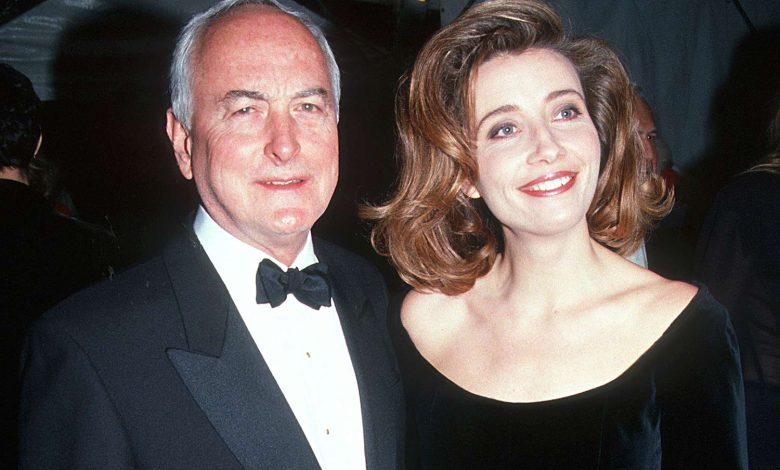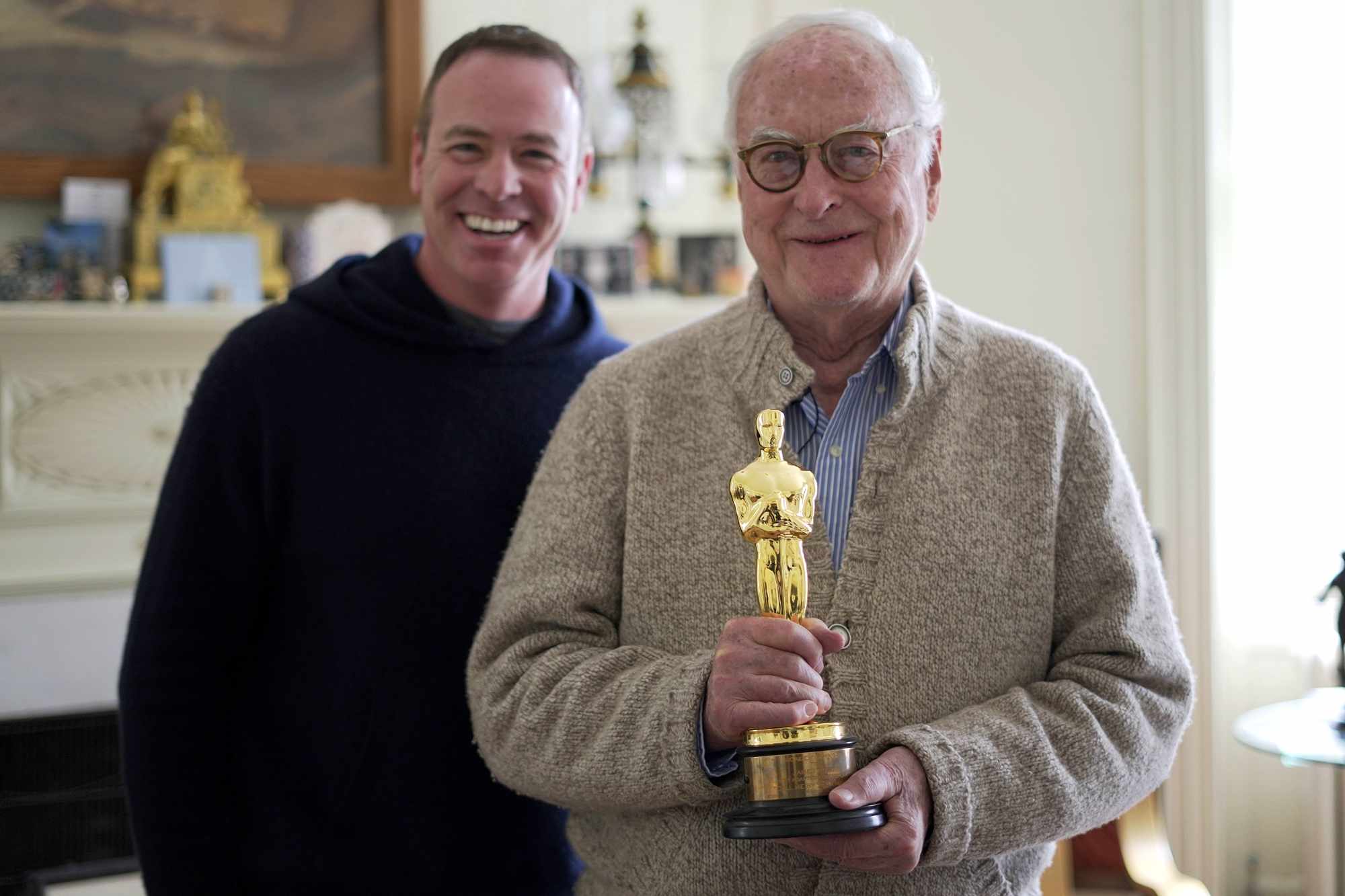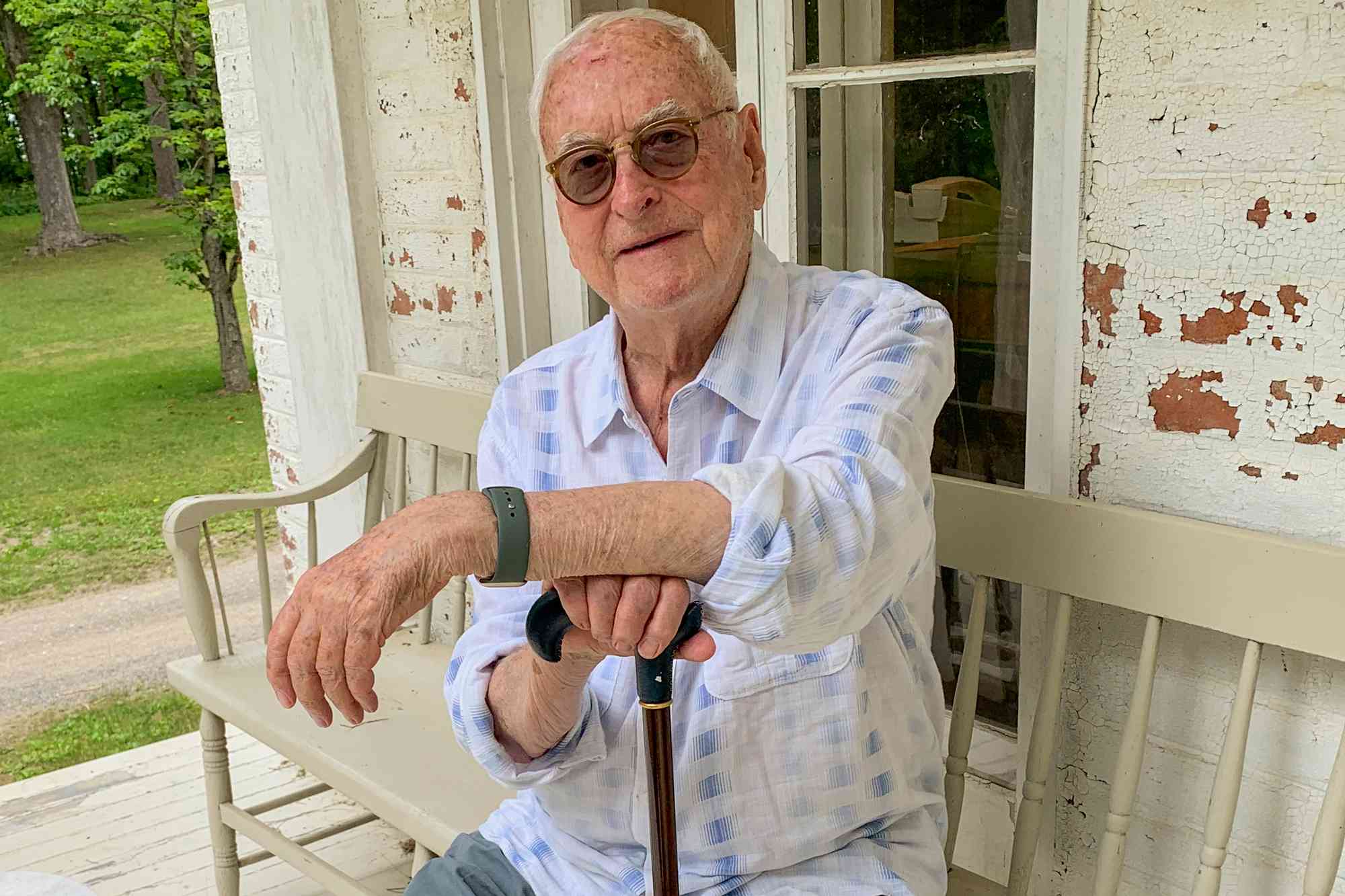Howards End Director James Ivory, 96, on Being a Gay Icon and Why He Didn’t Come Out in the ’90s (Exclusive)

In profiles and interviews surrounding the release of Call Me by Your Name, which ultimately earned Ivory his first for Oscar, for Best Adapted Screenplay (after three nods in the Best Director category), Ivory told The New Yorker that being openly gay during the production of his ’80s and ’90s classics was “unthinkable.”
He also told The Guardian in 2018 that keeping quiet about their private lives was a way to protect his partner. “That is not something that an Indian Muslim would ever say publicly or in print. Ever! You have to remember that Ismail was an Indian citizen living in Bombay, with a deeply conservative Muslim family there. It’s not the sort of thing he was going to broadcast. Since we were so close and lived most of our lives together, I wasn’t about to undermine him,” Ivory said of Merchant at the time.
Since then, Ivory has been more open about his romance with Merchant, detailing their relationship in his 2021 autobiography Solid Ivory: Memoirs, and in Merchant Ivory, which opened in select theaters in Los Angeles and New York City on Friday, Aug. 30.
When asked about the moment in the documentary when he tells Soucy to move on after Soucy brings up the topic of Ivory being a gay man living in N.Y.C. during the ’60s, Ivory directs his response to Soucy, “[You] just should have read my book when it came out. It wouldn’t be a shock.”
“Jim really goes so much further and talks about a lot more in his book than we covered in the film,” Soucy tells PEOPLE, adding that if “anybody who wants to know kind of the details of Jim’s life in that way — one’s private life — it’s in the book.”
Chiming in, Ivory clarifies, “There was nothing that one wanted to hide about it.”

Later, Soucy echoes Ivory’s sentiment about being “gay filmmakers” when reflecting on the impact Ivory and Merchant have had on the industry as two men from the LGBTQ community, telling PEOPLE that idea “is a more recent thing.”
But there’s also no taking away from the lasting resonance 1987’s Maurice had on audiences, particularly queer ones. Adapted from E. M. Forster’s posthumously published novel, Maurice starred James Wilby as the titular University of Cambridge student who has an affair with Clive Durham (Hugh Grant) before the latter ends their relationship over fear of being arrested for being gay.
Following the release of Call Me by Your Name, Ivory called out that film’s lack of male full-frontal nudity, which had been so groundbreaking in Maurice, telling The Guardian, “The two guys have had sex, and they get up, and you certainly see everything there is to be seen.”

While Ivory doesn’t think of any of his other movies as “gay films,” he says Maurice “totally” was. And Soucy goes even further, acknowledging the “tremendous impact” it had “on a lot of people, myself included,” while noting how “amazing” it is “the number of films that they made within the period that [Ivory and Merchant] worked together.”
If anything, with the documentary, Ivory wanted to make sure Merchant was also remembered as a director. “It was very important to Jim that I show Ismail Merchant as a director and the films that he directed [including 1993’s In Custody and 2001’s The Mystic Masseur] because those films were so important to Ismail,” Soucy recalls of working with Ivory to make the documentary.
And for Ivory, the project was an opportunity to “bring out all kinds of memories. I mean, that was interesting in itself.” After watching it, he says, “I was pleased.”
Merchant Ivory is now in select theaters. Watch an exclusive clip from the documentary:
Source: People
Related Posts
- Roundball Rocked: With NBA Return Looming, NBC Purges Scripted Roster
- SoundCloud Says It “Has Never Used Artist Content to Train AI Models” After Backlash on Terms of Service Change
- Fox News’ Camryn Kinsey Is “Doing Well” After Fainting on Live TV
- Kerry Washington and Jahleel Kamera in 'Shadow Force.'
Courtesy of Lionsgate
…
- This Alternative Artist Landed a Top-20 Chart Debut With an Album Made Almost Entirely on His Phone





